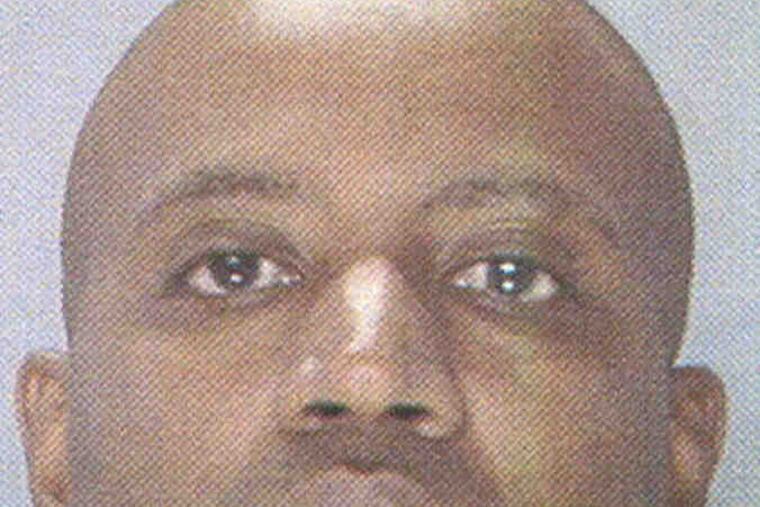Prosecution grills Danieal's father at trial
Daniel Kelly Sr. said he loved his disabled daughter Danieal, would never have done anything to harm her, and had accepted that she "would be totally dependent on me for the rest of her life."

Daniel Kelly Sr. said he loved his disabled daughter Danieal, would never have done anything to harm her, and had accepted that she "would be totally dependent on me for the rest of her life."
He also conceded that he had "procrastinated" when it had come to such things as getting Danieal a new wheelchair, eyeglasses, and doctor visits and enrolling her in school.
And when his ex-wife and her mother ejected him from the house, moved with the children, and refused to provide new contact information, Kelly acknowledged, he did not go to police, a lawyer, Family Court, or anyone else to fight for visitation.
By turns polite and prickly, soft-spoken and sarcastic, Kelly tried Wednesday to convince a Philadelphia jury that he bore no responsibility for Danieal's 2006 starvation death.
"You loved your daughter?" asked defense attorney Earl G. Kauffman.
"I loved her very much," Kelly quietly replied. "I loved her with all my heart."
"Did you do anything to put her in a dangerous situation?" Kauffman continued.
"Never," Kelly replied.
Danieal, 14, who could not care for herself, was found dead Aug. 4, 2006, in her mother's squalid two-bedroom West Philadelphia apartment. She weighed 42 pounds - the weight of a typical 5-year-old - and was on a feces-stained mattress, her back covered with maggot-infested bedsores, one that went bone-deep.
Kelly, 40, is charged with child endangerment on allegations that he abandoned Danieal and her year-older brother, Daniel Jr., in 2005 with ex-wife Andrea Kelly, though he had taken them from her 10 years earlier because of neglect.
Kelly was the only one of three on trial who chose to testify. The last defense witnesses are to testify Thursday morning, followed by closing arguments.
Kelly spent almost three hours before the Common Pleas Court jury, including an hour of rigorous questioning by acting First Assistant District Attorney Edward McCann.
McCann retraced Kelly's custody of Danieal and her brother from 1995, when he took them to Pittsburgh after removing them from Andrea's custody, to his return with them to Philadelphia in July 2003 after years living with a girlfriend in Arizona.
At each problem along the way, McCann pressed Kelly to explain what happened.
"Well, there were multiple reasons for that," was Kelly's common reply, as when he began a protracted tale of bureaucratic delays that kept him from getting Danieal care and schooling after returning to Philadelphia.
Finally, McCann cut Kelly off: "So, in nine months, she never went to school and never got her wheelchair and never got set up for services?"
Kelly paused: "That's correct, sir."
During seven days of testimony, prosecution witnesses portrayed Kelly as a father who had been there for his children only when he had someone's support.
In Pittsburgh and Arizona, it was girlfriend Kathleen Ward, who told the jury how Danieal had thrived getting physical therapy and going to a special-education school.
But when Kelly and Ward split in 1999 and he moved with the children to an apartment in Mesa, Ariz., the children stopped going to school.
Kelly acknowledged that he had depended on others - Ward's mother and sister, a roommate's girlfriend - to watch the children while he worked.
Ultimately, Kelly conceded that he had left the children alone, giving his son Ward's phone number in an emergency. In October 2001, a report by his roommate's girlfriend resulted in an intervention by Arizona child-protection services.
After returning to Philadelphia, Kelly said, he and the children briefly lived with Walter Ingram, Andrea's uncle.
Kelly said he then had rented a house with his mother-in-law. Soon, Andrea and her seven other children joined him, followed by Andrea's sister and her children and other relatives until 19 people lived in the house.
But in March 2004, Kelly said, he got into an argument with his mother-in-law about conditions in the house. Police were called, and he was ejected and told not to return.
After several months with a friend, Kelly got an apartment in South Philadelphia. He said he had seen his son once or twice before Danieal died; he never saw Danieal again.
Kelly insisted he had not abandoned his children. He said Ingram had given him reports of their condition but had refused to divulge an address or phone.
Kelly insisted he'd had no indication that Danieal's condition had been deteriorating.
McCann, however, cited testimony by Ingram, who said he had told Kelly "the kids were not doing well."
"That's not what he told me, sir," Kelly replied.
Also on trial are Mickal Kamuvaka and Dana Poindexter, social-service workers who prosecutors allege neglected their legal duty to ensure Danieal and her eight siblings were safe.
Kamuvaka, 62, was founder and top administrator of MultiEthnic Behavioral Health Inc., an agency hired by the city Department of Human Services to do twice-weekly in-home visits to ensure that Danieal and her eight siblings were safe and getting needed social services.
Kamuvaka is charged with involuntary manslaughter and counts involving falsifying paperwork to try to fool investigators into believing the Kelly household got the twice-weekly at-home visits DHS authorized.
Poindexter, 54, the first DHS social worker assigned to investigate neglect allegations against Danieal's mother in September 2003, is charged with reckless endangerment and perjury. He is accused of never visiting the house and of keeping his investigation open for 21/2 years without recommending services.
Andrea Kelly, 42, pleaded guilty to third-degree murder in 2009 and is serving 20 to 40 years in prison.